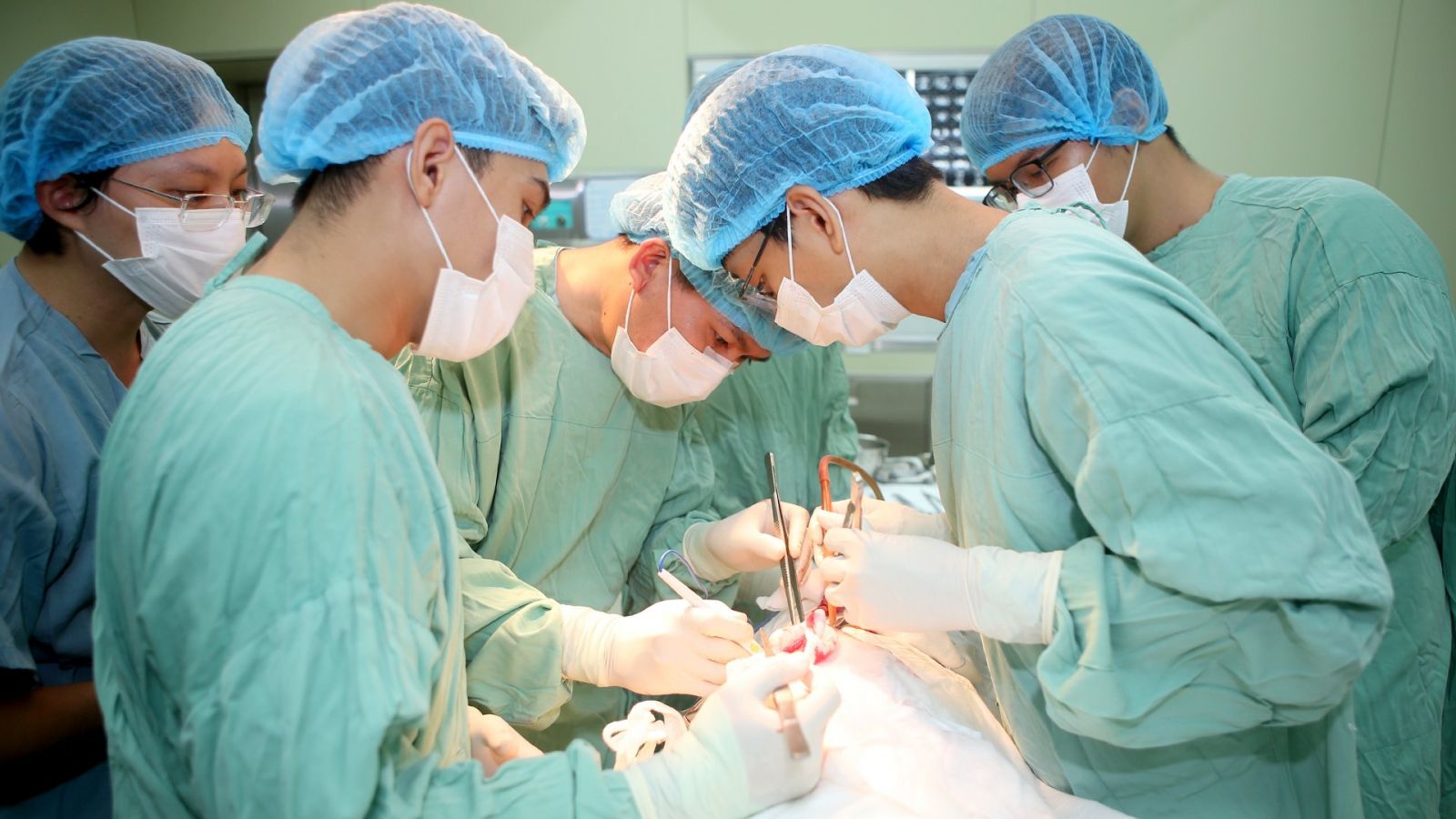
Doctors of Hue Central Hospital performing the surgery. Photo: Thuong Hien
Previously, on July 9, Hue Central Hospital received a male patient (58 years old) transferred from Vietnam - Cuba Friendship Dong Hoi Hospital. The patient was diagnosed with a nearly complete loss of the left ureter after endoscopic retrograde laser lithotripsy of the left ureter, with the left kidney having percutaneous drainage and the kidney stone recurred in the right one.
Two days earlier, at a lower level hospital in Quang Binh, the patient was diagnosed with recurrent left side ureteral stone and right side kidney stone, and had endoscopic extracorporeal lithotripsy of the left ureter at a lower level hospital. However, the process of lithotripsy led to complications, causing damage to nearly complete loss of the ureter.
Right at the time of the complication, Hue Central Hospital provided remote support and instructed to transfer the patient to the Vietnam - Cuba Friendship Dong Hoi Hospital. Here, the patient had percutaneous kidney drainage and transferred to Hue Central Hospital in the night.
At Hue Central Hospital, the patient was examined, tested, and performed a Uroscan. In multi-specialty consultation, the patient was evaluated by experts as a special case, the left ureter was almost lost, the left kidney function was still proper, there were stones in the remaining ureter. At the same time, the decision was made to do a renal autotransplant to save the patient's left kidney. The right kidney has a renal pelvic stone, which was at risk of causing urinary tract obstruction, so the sonde has been placed using endoscopy.
The surgery was performed on July 14, and lasted 4 hours. Up to now, the patient's health condition is stable, both kidneys are working well.
According to Hue Central Hospital, this is the second renal autotransplant case in the Central region as well as at the unit, after the first case performed in 2020. The success of the operation is an important premise for the hospital to continue to perform renal autotransplant for other patients in the future, as well as to support the lower level hospital to manage urinary tract complications promptly and effectively.
By Dong Van